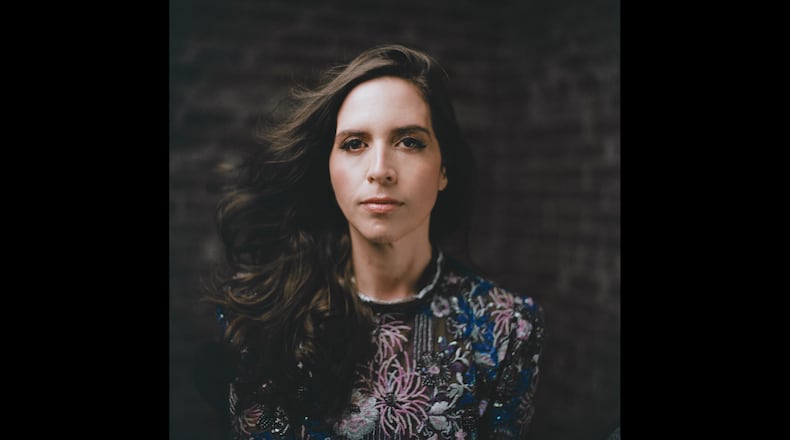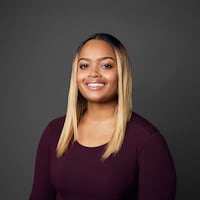During a 2014 residency at The Hambidge Center in Rabun Gap, Jenny Sadre-Orafai worked on a manuscript for two weeks, but didn’t like anything she wrote. Nothing was clicking for her.
“The day I got there, I hung up all the pages in the cabin that I was staying in, and i just kept walking around and thinking, ‘Yea, I don’t like this book,’” Sadre-Orafai said. “The phone there, you can only receive calls so that you can focus. It was a little isolating. My dad called me and he told me to just write about what I was afraid of.”
Then she wrote 60 poems in about 4 or 5 days that were based on her fear of losing her parents. The practice formed “Dear Outsiders,” her fourth poetry collection (University of Akron Press, $16.95). The book, released on Tuesday, employs sensory details and nature-inspired imagery to explore themes of identity, family and isolation. Sadre-Orafai will read a handful of poems from the book during a reading at A Cappella Books on Sunday.
The Atlanta-based writer grew up in Tennessee, but has lived in Georgia for more than two decades. Her work has appeared in the Los Angeles Review, The Rumpus and others. Sadre-Orafai teaches creative writing at Kennesaw State University. She also mentors writers of color through the Periplus Collective. She formerly served as the executive director of the Georgia Writers Association.
“Dear Outsiders” is Sadre-Orafai’s first collection of prose poems.
“It was almost like I was telegraphing them,” Sadre-Orafai said about the writing process for “Dear Outsiders”. “Like someone was just telling me, and I was like OK. They’re nothing like the other books in form, voice and language.”
Sadre-Orafai’s fear of her parents’ death doesn’t stem from any looming illness, but is the result of how society treats people of color. She said the fear traces back to her childhood.
“I know it’s inevitable, so I’ve always, since I was a child, kind of experienced a lot of anticipatory grief, so the book was just my way of coming to terms with that,” Sadre-Orafai said. “Much like the narrators in the book, I grew up in the South and my dad is Iranian and my mom is Mexican, so I think that I’ve always felt on the outside, but then within our family there’s this kind of bond because everyone else is against you, so I think that kind of closeness and reliance (is something) I experienced early on because of how we were perceived in the communities we lived in”
Credit: University of Akron Press
Credit: University of Akron Press
She recalls being called slurs when she was younger because of her identity and having notes shoved in her locker that told her she’d burn in hell. Now, she deals with people constantly asking about her ethnicity and being screened for bomb residue when she goes to the airport. Sadre-Orafai said those experiences translate into the book’s penchant for cataloguing and listing items as a form of protection.
“After a while, you become hyper-vigilant and you’re always on the lookout for danger.”
That’s part of why her family is incredibly important to her. They provide one of the few spaces in which she feels safe. They make her feel like she belongs.
“I still identify as a daughter first, even though I’m a spouse, even though I’m a sister, even though I’m a stepmother,” Sadre-Orafai said. “I think that daughter role is just how I see myself, and so I think that’s also part of why losing my parents will be so hard for me because it’s like who are you. I wouldn’t be a daughter anymore.”
For others who’ve lacked a sense of belonging within society, Sadre-Orafai hopes they feel represented and accepted while reading “Dear Outsiders.”
“I do want people who are outsiders, who don’t fit in, who don’t belong to kind of find themselves in there. I read a lot of literature when I was young, and I was never in there. My experience was never in there, so I know what that can feel like.
IF YOU GO
Jenny Sadre-Orafai
3 p.m. Sunday, March 12. A Cappella Books, 208 Haralson Ave. NE, Atlanta. Free. Books will be available for purchase.
About the Author
The Latest
Featured




